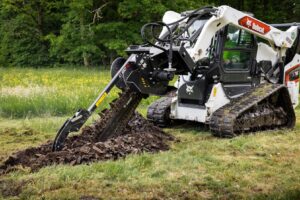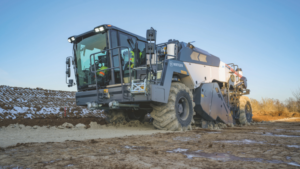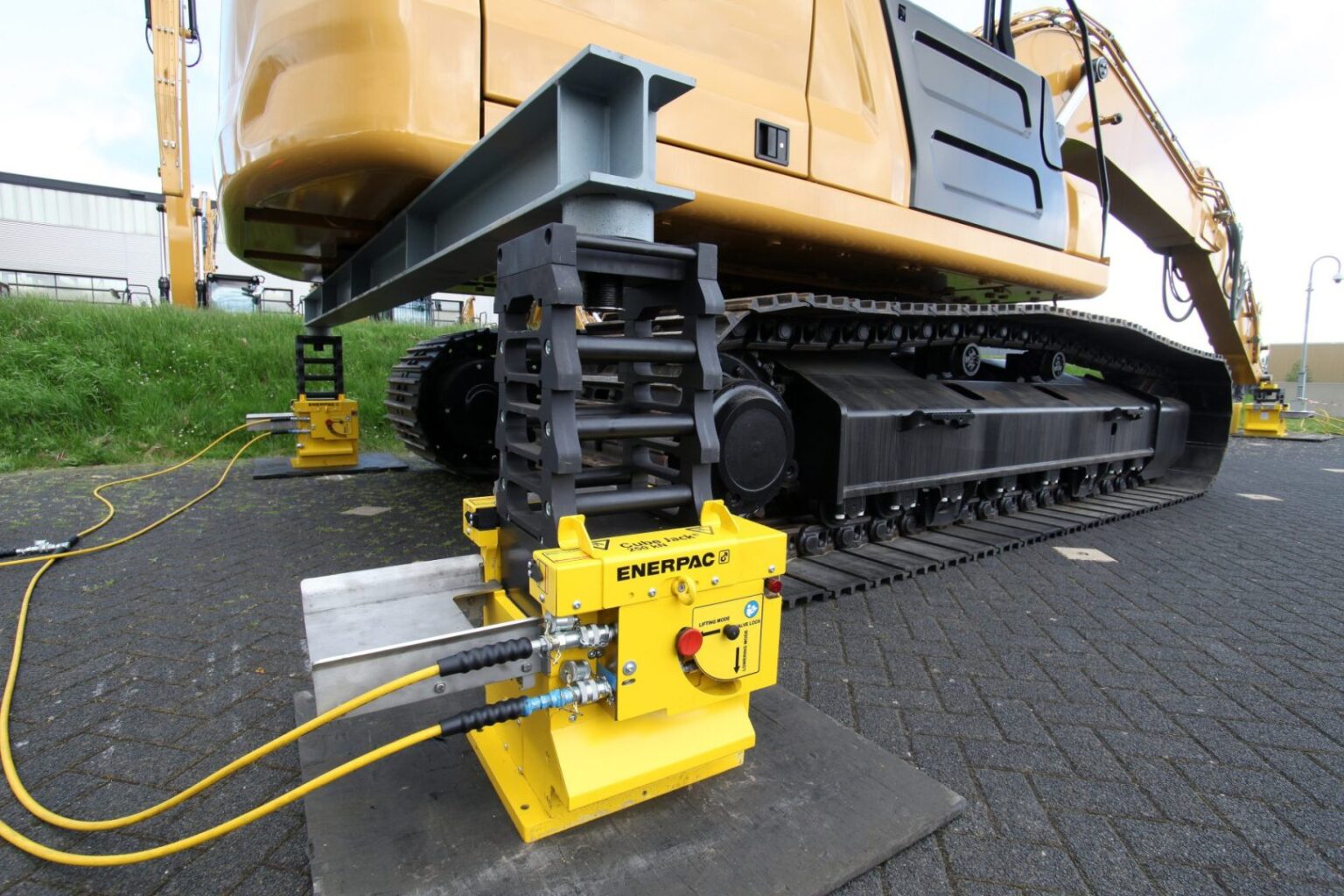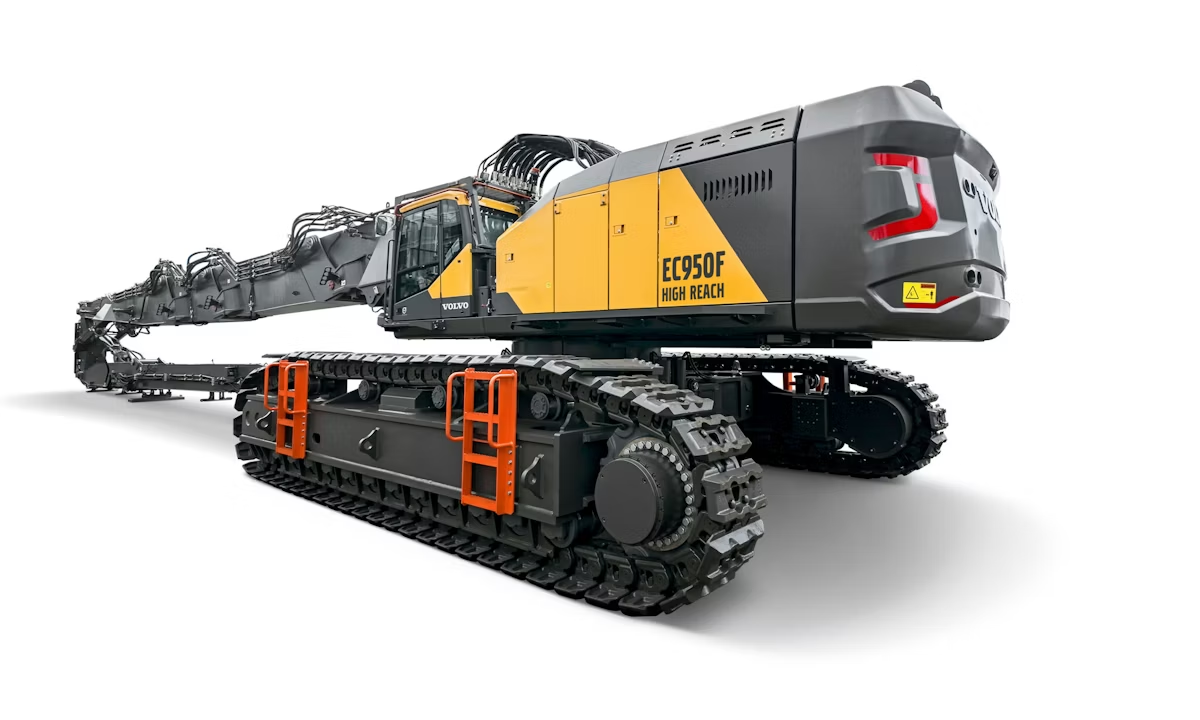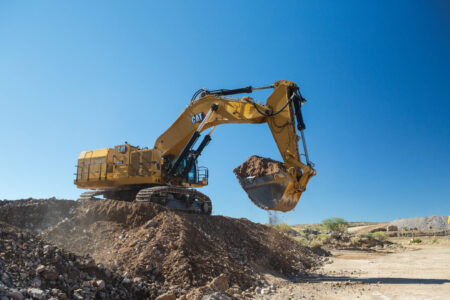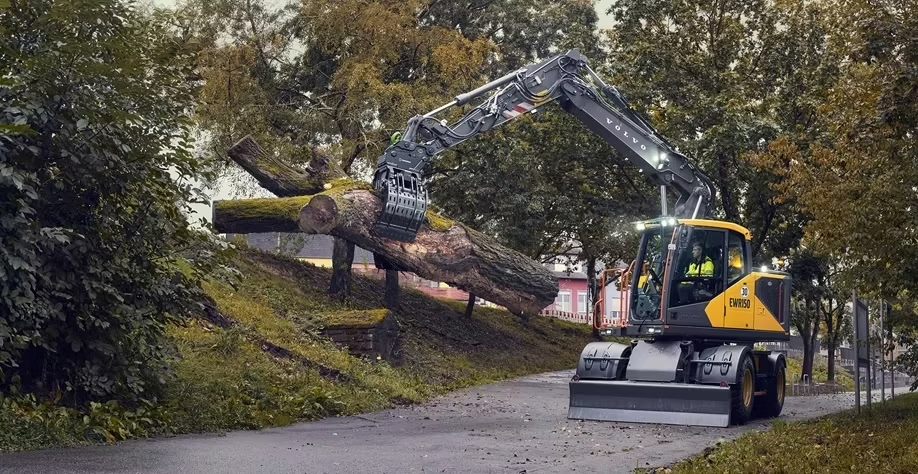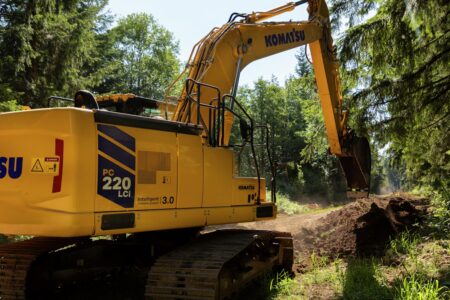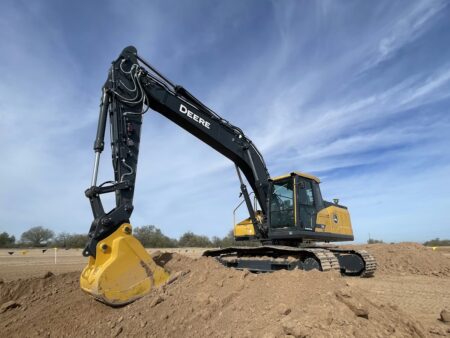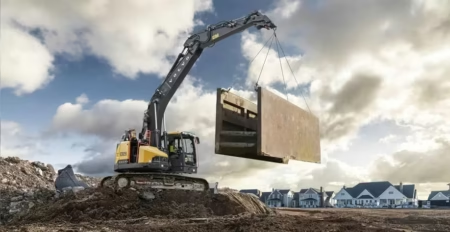Enerpac has announced a new lifting system for excavator maintenance. Based on Enerpac SCJ-Series Cube Jacks, it enables lifting and holding of the entire cab, boom and arm, which allows removal of the undercarriage.
During maintenance of the excavator’s swing drive and bearings, the undercarriage must be separated from the upper body cab and arm to give access to the swing motor and multiple sets of planetary gears. This typically requires at least two service engineers jacking up the body and holding it on stands, a time consuming and potentially hazardous practice.
According to Enerpac, the cube jack lifting system offers a safer, CE-certified, approach to removing the undercarriage. It includes two pairs of cube jacks providing coordinated hydraulic lifting of loads up to 25 tons per jack to a height of 2 metres.
Two cube jacks are positioned under a lifting beam at the rear of the excavator, while two cube jacks are located under the arm’s bucket lugs. Each pair of cube jacks is connected to a hydraulic pump to synchronously lift and lower the excavator body and arm.
“The excavator lifting system has been developed in collaboration with a leading excavator maintenance company looking for a safer CE-certified approach to removing the undercarriage,” Enerpac said in a news release.
“It automatically self-locks so that engineers can work safely under the raised cab without the need for secondary jack stands.”
Enerpac cube jack
Enerpac cube jack technology is used in many industrial lifting applications. The SC-Series Cube Jacks use a base lifting frame and self-aligning, lightweight steel cribbing blocks to provide high-capacity and stabilized lifting–offering a safer, controlled and more efficient alternative to climbing jacks with wooden cribbing.
RELATED: United Rentals outlines the benefits of preventive fleet maintenance
Lloyds witness tested to 125 per cent of maximum working load, the incremental cube jack lifting system is self-locking to support the load as each cribbing block is manually added or removed, instead of being held by hydraulic pressure.
Once the mechanical lock engages, the lift cylinder retracts, and another cribbing block can be added or removed.
Read the full article here

